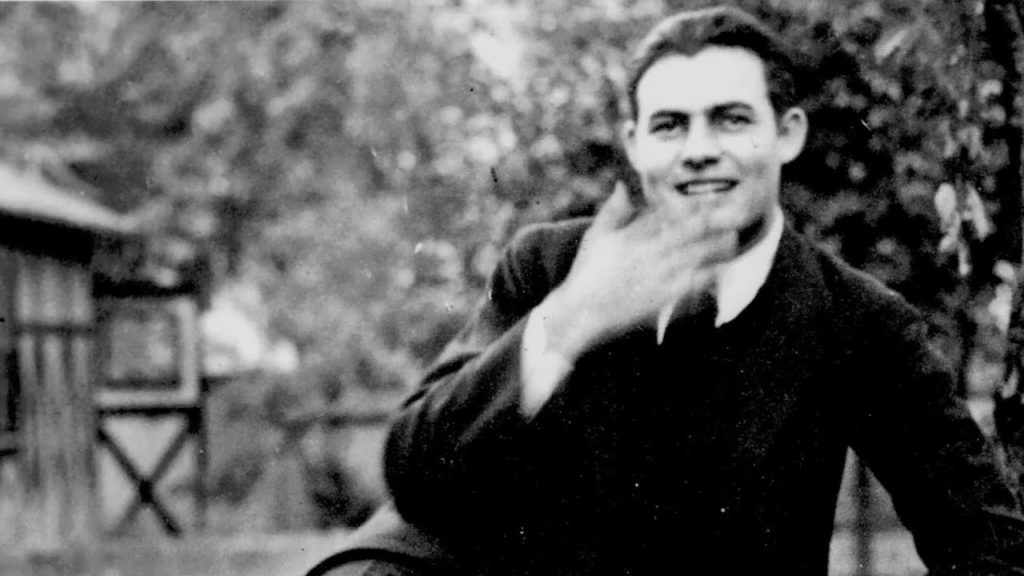
Time for some time-hopping. Come along with me. It’s Christmas morning, they say, and it’s 5 a.m. and we’re going to jump around a little bit.
Don’t go scrolling back as if you are going to find Nostalgia, Part 1… like maybe you just missed it from last week. I wrote Part 1 back in July, and back then I didn’t call it Part 1. You can find it here (and you should read it):
https://www.brownwoodnews.com/2022/07/27/michael-bunker-nostalgia/
No, seriously, you should read it. Take the time because (looking back) it is worth it. You might learn something about important things.
Nostalgia is important, but there are different kinds of nostalgia. There is the valuable kind… the kind that keeps memory alive and that open wound of memory becomes a storehouse of value so that maybe, just maybe, we can return to something as good or even higher and better than what we had. Urban revitalization is an example of valuable nostalgia. The things we often long for in the past are the things that had value and helped us to be whole. As I say in the linked article, we want a cool, walkable downtown because the desire for it is coded into our historical DNA.
There is a second type of nostalgia that, by contrast, is toxic and sad. It’s the kind that looks back and uses the past to condemn any hope of a good or pleasant present or future. Toxic nostalgia says, “our better days are behind us and nothing will happen that is as good or better than where we have been.” That is to say, “Today sucks and tomorrow will too and I’m not going to do anything about it but remind everyone.” In that kind of toxic nostalgia, history is a faded picture in a scrapbook that you can never revisit again. Toxic nostalgia does not inspire work or restoration or renovation. It just looks back and dies.
As I often do, I’m going to goof around and confuse you some before we continue on to Part 2. You see, I wrote Part 2 (what you are about to read) before Part 1. Time travelers can be difficult to understand sometimes. As you can see from the link, Part 1 was written on July 27th of 2022. A month earlier, in June of 2022, I wrote what follows. My mind doesn’t work linearly, and we all just have to deal with it. The last few days have been really cold, but I wrote this back when it was over 100 degrees day after day after day. I was working two jobs back then, not counting writing things for you all.
Anyways, here goes,
It was hot again. It is futile and silly and not a little arrogant to argue with the weather, but sometimes you think that however much you’ve appreciated the many pleasant days, you’ve never fully appreciated them as much as you ought. Memory and nostalgia make every day different than it was unless you diligently seek to capture it aright in your memory.
Walking to the restaurant past shoppers and people taking pictures in front of the Vault and people heading to the Taphouse for beers, I think back to eight months ago when I would have been sitting out in front of 10mile or the Taphouse at this hour with a beer and a cigar and those days seem to be gone for now, but they are still with me.
The business waxes and wanes on Saturday night and one minute we are slammed busy and then that rush gets over and the bar is placid and quiet for a bit before another rush hits. Sometime during the shift, the sounds of loud motors and traffic fill the place. Someone tells me that they are having a retro/vintage automobile “drag” thing downtown where the reminiscers in their cars all drive the route of the old downtown “drag” like we used to do back in Odessa a long time ago. Looking out the windows, I see the roofs of an endless loop of cars and the people watching on the street corners and the nostalgia hits me a little as we talk about our own experiences with “dragging” back in the day.
Someone at the bar makes the comment to me that “you are just here among us researching for a book,” and I laugh and say that I said as much in my last Brownwood post, but most people didn’t catch it. I’m always surprised when someone remembers that I’m a writer because in this context, bartending, I often forget it myself. I get taken aback when people mention it because sometimes I think they are talking about someone else. A lady walked into the bookstore yesterday and picked up my novel WICK and brought it to the register and I said “Oh, that guy,” and she said, “Oooh, that’s right. You wrote this didn’t you?” and I was surprised to hear it and glad to know it – though I do remember writing it with a good friend.
Standing behind the bar I’m a bartender now and no writer at all even if the man across the bar is right. I am doing research – I am writing – and the loud motors revving outside and the nostalgia for giddy electric nights in Odessa thirty-plus years ago with the hot night air blowing through rolled-down windows, radio cranked up, and the pleasant open wound of bygone days makes me want to take notes and capture thoughts on napkins or whatever paper is to hand. But I catalog the moment, snapshot it all like the people did on the street outside earlier, and now – in this morning – it spills out in recall like the water in the fountain in Coursey Park that I can see through the front window. I am at the bar on Saturday night, and I am also here in the apartment at 5 a.m. and I am not a writer and I am and all these things are true.
Downtown Brownwood has a story to tell in all of this and everyone knows I am writing it even when I’m not. I’ve written about how cities support the visual arts and the performing arts gleefully but they have no part with literature (they don’t support it) except sometimes way after the writer is dead – because they don’t see the value. They want a Robert E. Howard gravesite or a Katherine Anne Porter historical marker because dead writers are easier to deal with and don’t have opinions.
Cities are made of people mostly pursuing their own self-interests corporately and the other arts (the non-literary ones) are cash and carry – you get the payoff right then and take it home with you immediately. Books can seem to be that way, but they really aren’t. It was written long before you bought it – if anyone bought books today. Which they don’t.
That is to say that a writer is writing long before he sits down to write. Like this little meta exercise of time jumping, the writer is writing when he is behind the bar and maybe the words don’t come out for months or years or decades.
I’m reminded of Hemingway in Lyon.
Hemingway who’d never written a novel at the time, waiting angrily for Scott Fitzgerald (the famous older writer) to show up, and no one really knew Hemingway at all, and Fitzgerald couldn’t even spell Hemingway’s name correctly. And although the book vivifying these events wouldn’t be published for forty years or more, it was being written. The details are spectacular, and no beat is missing. Young Hemingway in Lyon is spending money he doesn’t have to help a new friend, famous and rich, who doesn’t much care, and Ernest thinks “I can borrow money from Sylvia Beach” to pay for the things I’m spending now, money that I cannot really afford. And all the while he is writing a posthumously published book, and no one knew it.
Think on that. I’m behind the bar. And I’m in a car in Odessa, feet kicked up on the dash, making the turn from Andrews Highway on to 42nd street… and as I sit here at 5 a.m. I can Facebook donate to help my neighbor in need… and as I do all of that I also want to tack some on for Hemingway in Lyon who is a kid writing the book in his head that they’ll publish after he’s dead. A book about the Moveable Feast like the one we have here today in Brownwood.
Everyone is a writer today and that’s why I’m sometimes convinced that I’m not one until someone reminds me.
So, I write. And sometimes things are written out of order but eventually they find their place. Stay tuned because I probably wrote Nostalgia, Part 3 years ago and one day it’ll come out.
Michael Bunker
